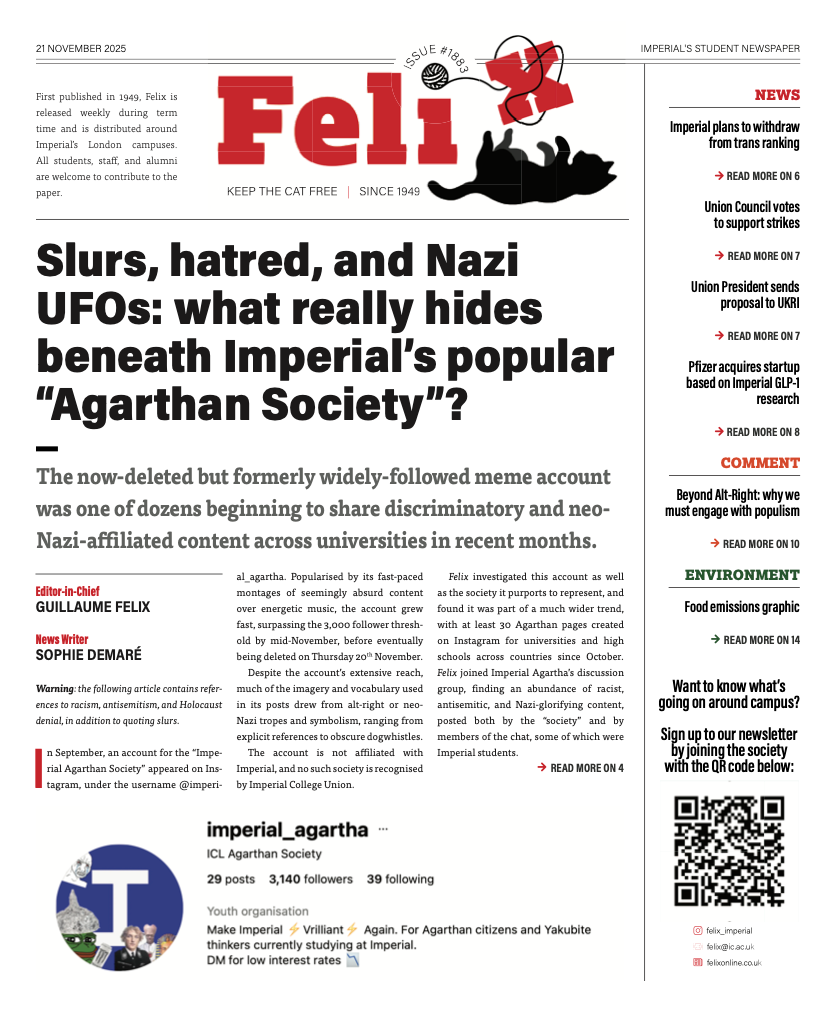ICU-led initiative calls for increase to London-based PhD stipends
London Russell Group universities say UKRI is failing to account for higher living costs in the UK capital.
Students’ unions representing London’s Russell Group universities have called on UK Research & Innovation (UKRI) to increase minimum PhD stipends in London as part of a year-long campaign led by Imperial College Union (ICU).
The proposal notes that UKRI, which establishes the minimum standard for annual living expense grants for PhD students across the country, has not changed the weighting it applies to London-based students to reflect the capital’s higher living costs for over 20 years. It estimates that the current minimum London stipend is 10% lower than what would be required to account for inflation, in contrast to the UK-wide minimum stipend, which it estimates exceeds the inflation-adjusted minimum level by 1.2%.
The letter’s headline request is for UKRI to fund an increase to the London weighting and establish a mechanism for it to track inflation going forward in a manner which “reflects the true cost of living in London.”
The group accompanied the proposal with results of a survey covering over 1,200 PhD students at Imperial, KCL, UCL, and QMUL. Notably, 90.8% of respondents stated that they struggle to cover additional living expenses (e.g. socialising, hobbies, and engaging in wider university life), 78% suffered mental health impacts as a result of their finances, and 89.8% voiced dissatisfaction with their funder’s response to the cost of living crisis. 28.9% of students stated that they were at risk of leaving their programme early due to financial challenges.
The proposal states: “Extensive free text comments showed high numbers of students with constant financial anxiety, no emergency funds, an inability to participate in full university life due to finances, and a concern that PhDs would become available only to the most privileged.”
In one response, a student shared “I have had days where I have to choose between travelling in to do my PhD work or eating.”
The initiative began when former Imperial postgraduate engineering representative, Deniz Etit, submitted a motion to the Union Council. He and Emina Hogas, Deputy President for Education at the ICU, and other Union peers proceeded to gather data and mobilise support from fellow London Russell Group students’ unions.
Hogas told Felix: “Bar going live with the proposal, the next biggest milestone was rolling out the funding survey earlier this year, which got a staggering amount of engagement from the Imperial (and London) PhD community, renewing our resolve in how impactful this work had the potential to be if successful.”
She also pointed to the “resounding” support offered by senior leadership at Imperial, explaining that they were “eager to assist in spreading the word among stakeholders ICU had yet to access.”
In an article published in WonkHE, ICU President Nico Henry emphasised the importance of PhD students to the UK government’s Research, Development and Innovation strategy, writing: “If UKRI is funding these PhDs, it’s because there is value to the wider public.”
Speaking to Felix, Henry said he hopes UKRI will “take this seriously and address that the weighting no longer matches living costs in London.” He added: “Previous research they commissioned acknowledged the need to look further into the experiences of London PhD students, so we hope they welcome this report and that they will work with us to conduct a formal review and create a clear plan to address it.”










